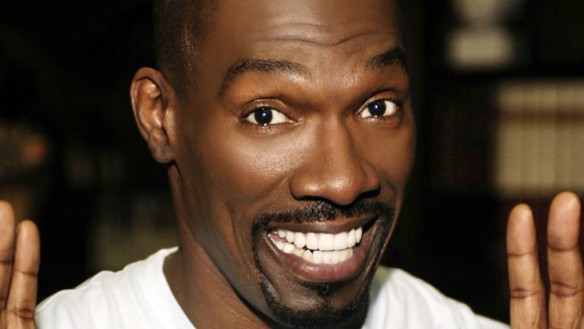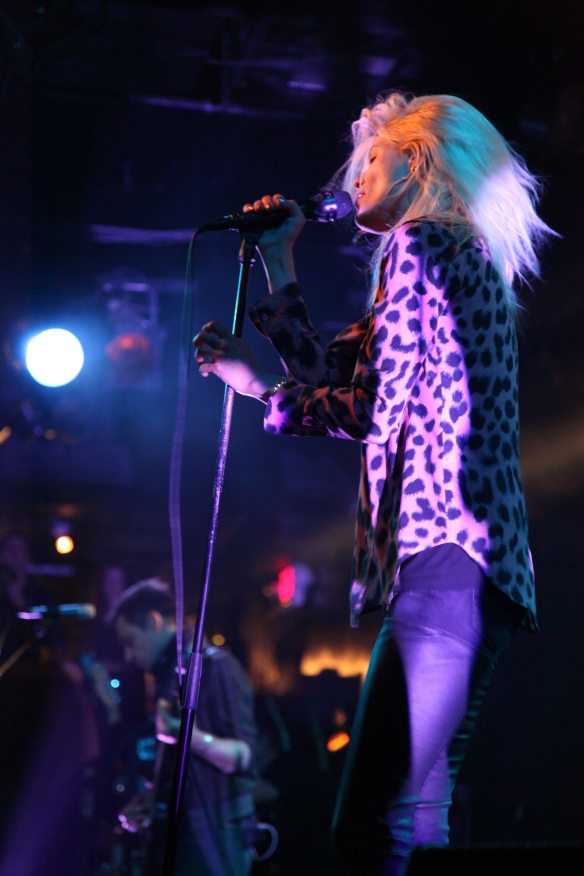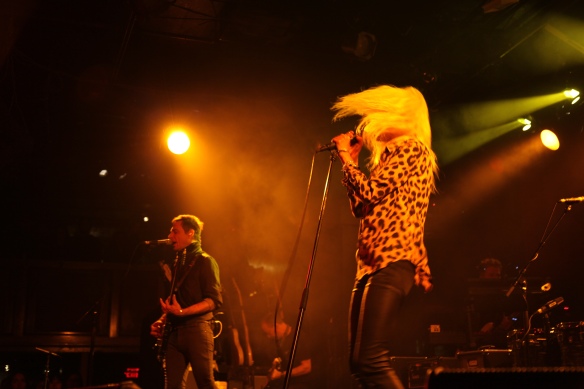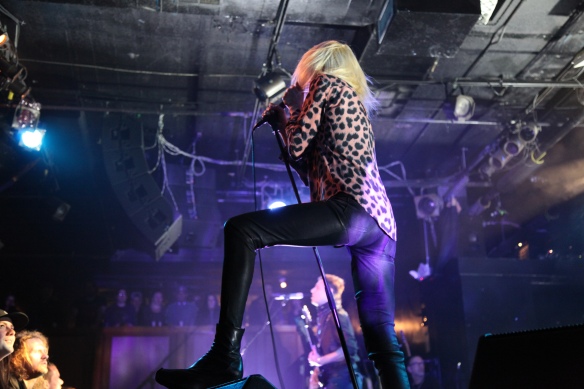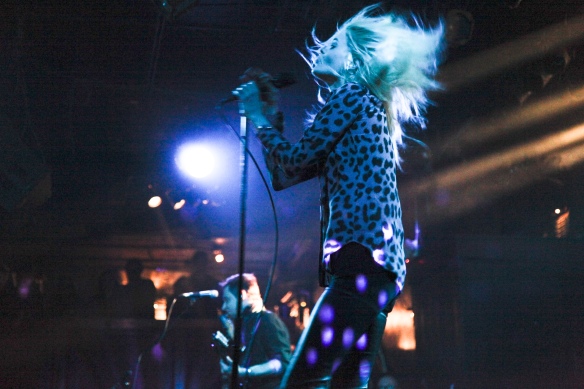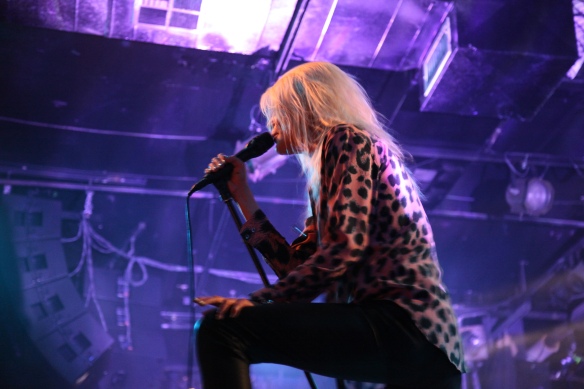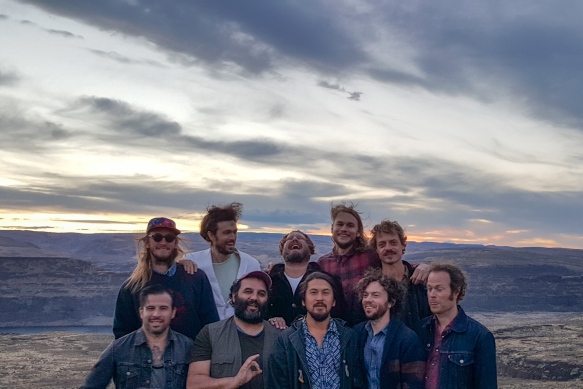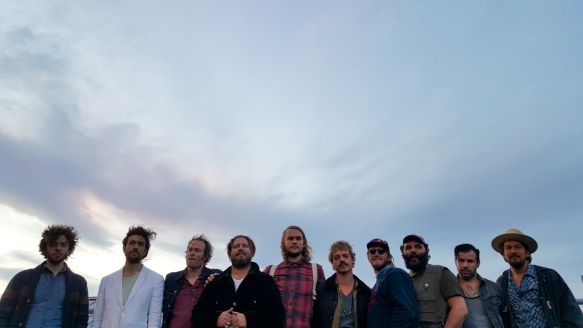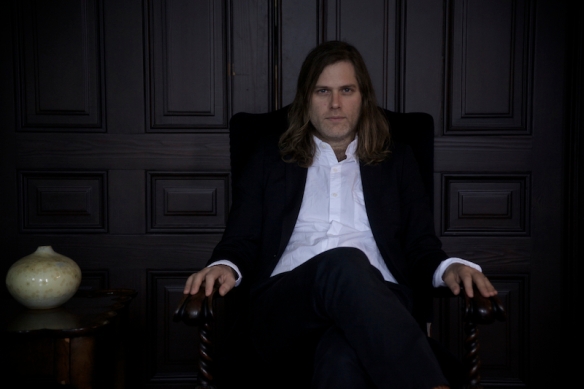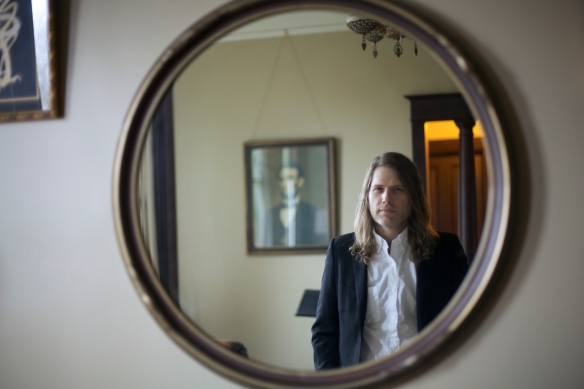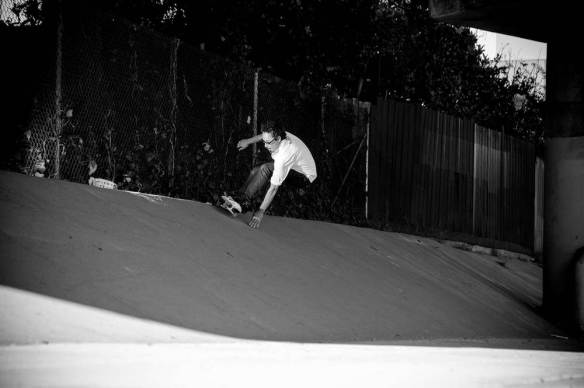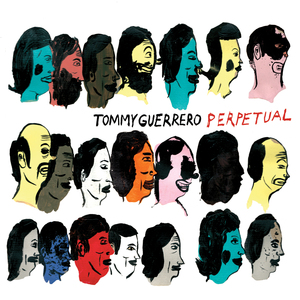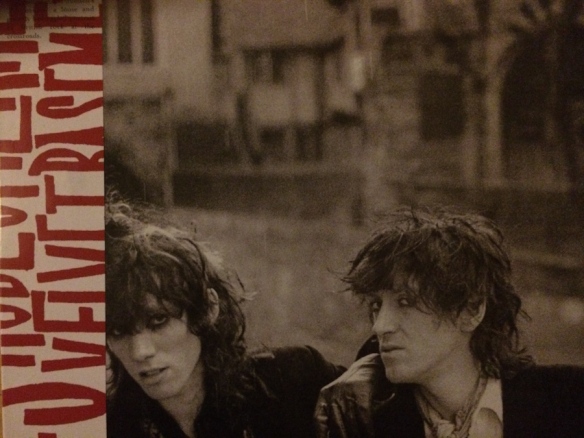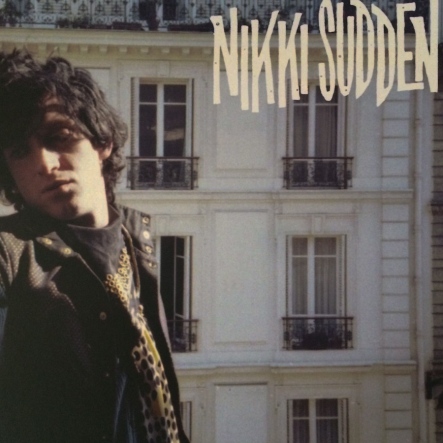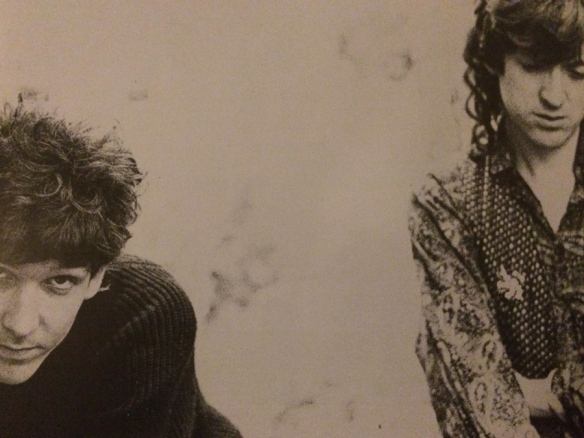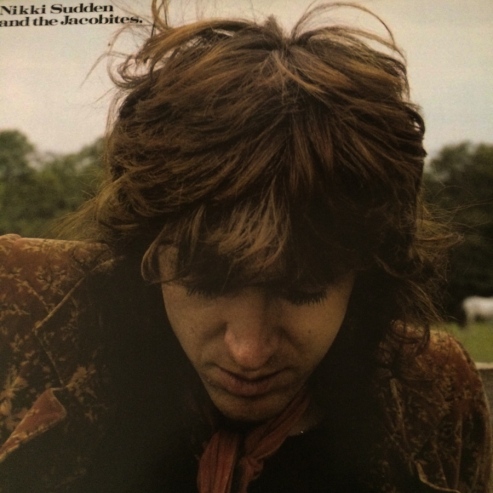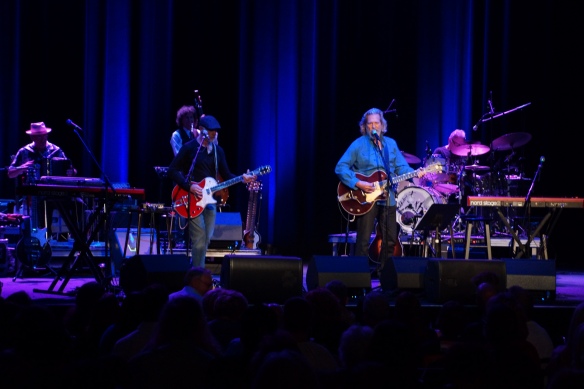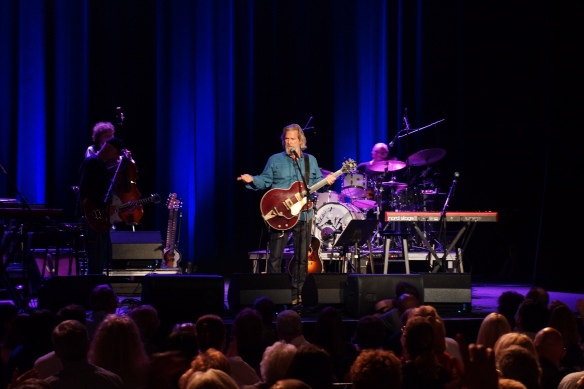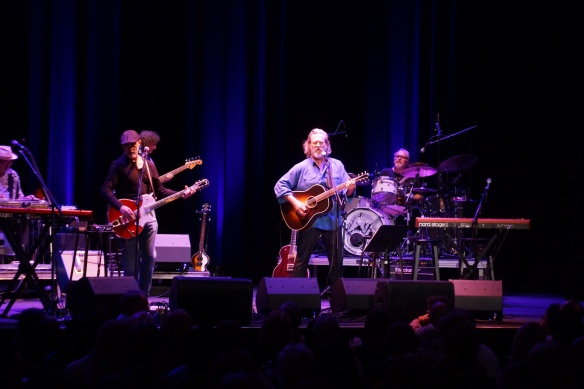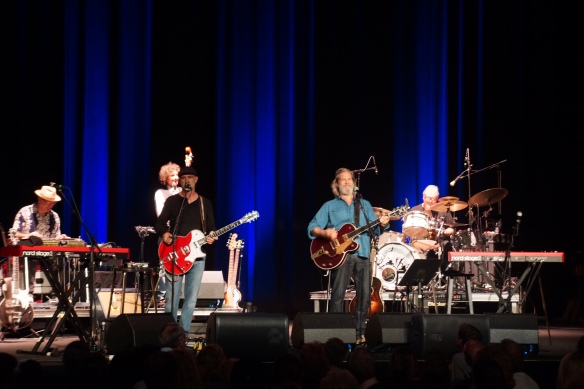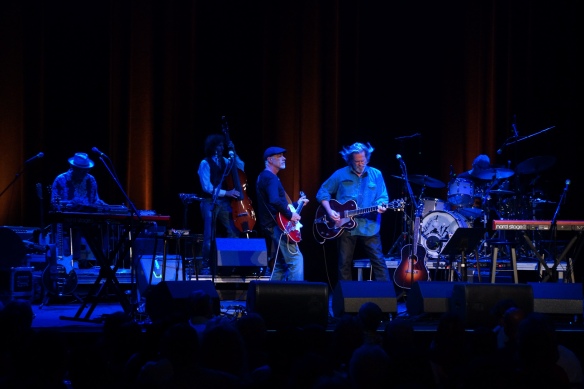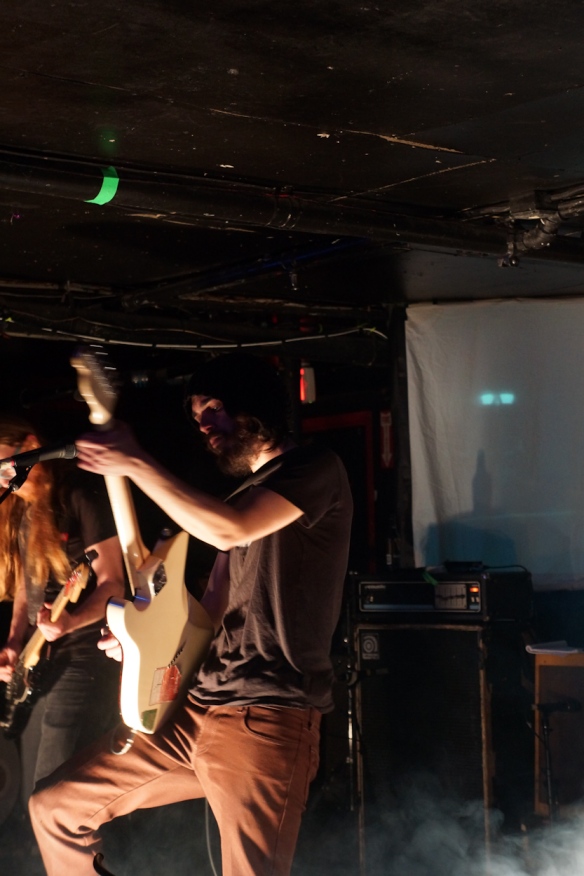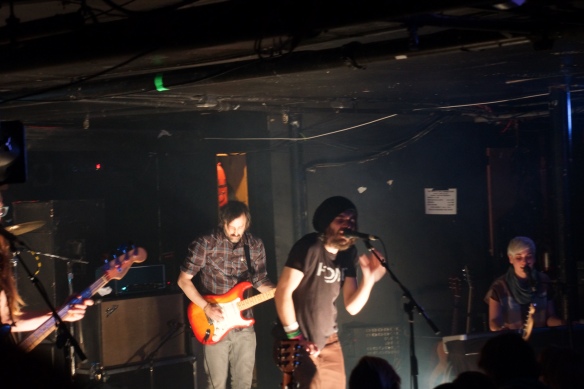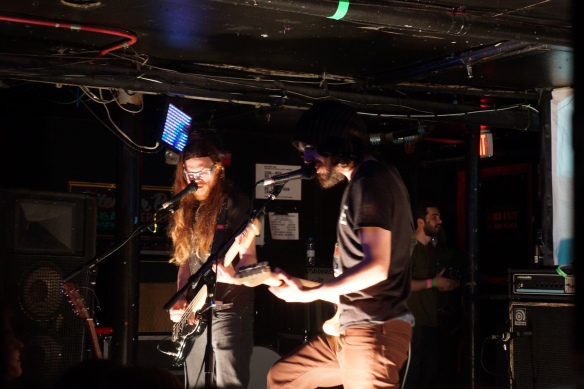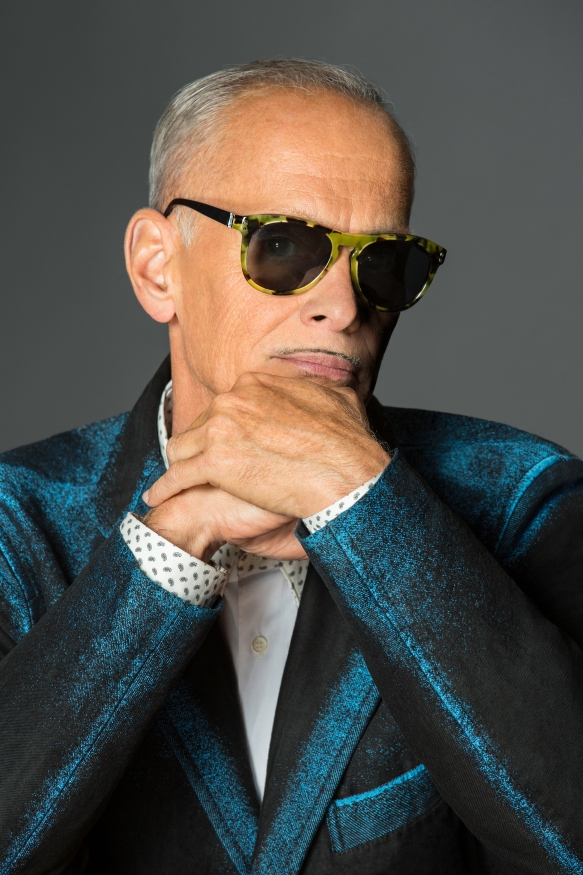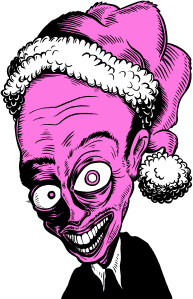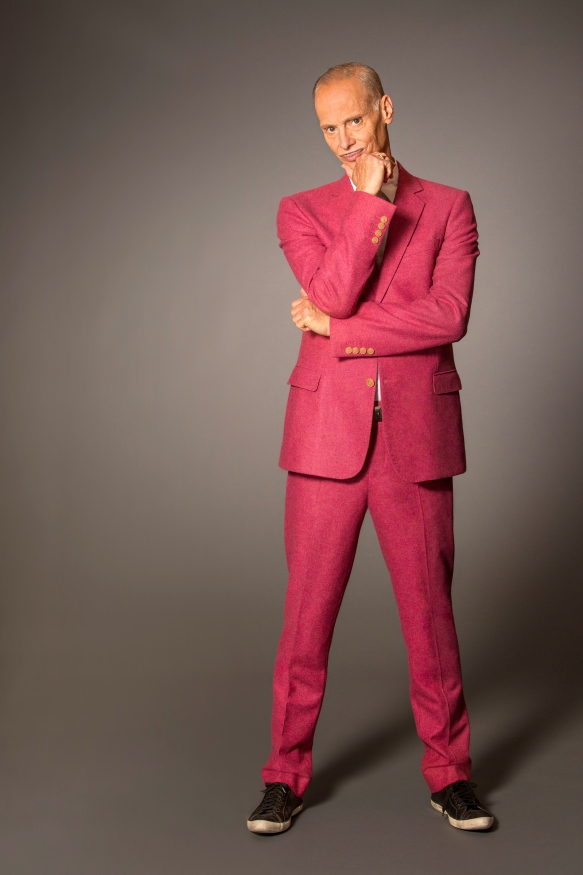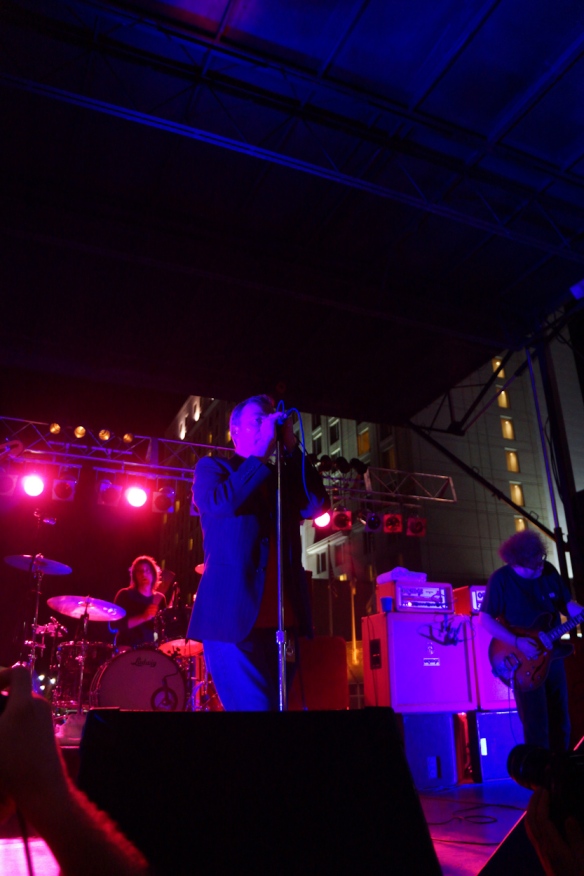
As the Jesus and Mary Chain wraps up a year full of shows celebrating the 30th anniversary of Psychocandy, I bring you an interview with Jim Reid conducted earlier this year.
The record was the band’s debut release– and most continue to say– their definitive recording. Jesus and Mary chain was founded by brothers Jim and William Reid and Psychocandy combined their love for 60’s girl groups, the Velvet Underground and the up-and-coming generation of noise bands to create a unique juxtaposition that would not only define the band’s sound, but become a sonic blueprint for the next several generation of psych bands to come.
When the album was released in 1985, no one had heard anything like it. Like bubblegum wrapped around razor blades, Psychocandy had an inherent pop sentimentality that shined through even the darkest, most turbulent moments. With 14 songs clocking in at just under 39 minutes, the album began with the devastating and now iconic “Just Like Honey,” only to be followed by an onslaught of distortion– heavy at the time, and still seething today. Bouncing back and forth between a reverbed quietude and the angry hiss and haze of lo-fi fuzz pedals, the record sputters, slices and shimmers into a controlled chaos and impending sense of danger with an intriguing nonchalance.
While this bond and band of brothers eventually led to constant feuds and the band’s ultimate demise, the Jesus and Mary Chain are back and touring the world to celebrate their seminal record in its entirety. We were fortunate to catch up with founder and lead singer Jim Reid to talk about the making of Psychocandy and the legendary highs and lows of the Jesus and Mary Chain.
Ladies and gentlemen, Mr. Jim Reid…
Hello, is Jim Reid there?
Yes, speaking.
Where are located nowadays?
I live in the southwest of England in Devon.
Besides your solo project, what have you been up to from the end of the Jesus and Mary Chain until the revision?
What have I done between the end of the Jesus and Mary Chain and the getting back together? I had children. I made two human beings. So that’s something. To be honest with you I didn’t do a whole lot. When the band ended in 1997, I just didn’t want to do anything with music for a while. Then after 2 or 3 years I started another band with some of my friends, but it was more of a drinking club than an actual band. It was three alcoholics in the band and we would go anywhere where people supplied free drinks. That band was called Freeheat. And that was it. It’s funny, I toyed with the idea of getting a solo career off the ground, but I’m just the laziest man on earth. I had one gig every two or three years and expected great things. That’s not really the way it works.
How hard was it to get the band back together? Was it something you even wanted to do or was touring again a necessary evil?
Well in 1997, I couldn’t have even believed that would ever be imaginable. When we walked away in 1997, it was forever. I really, really could not have envisioned a time when the Mary Chain would tread the boats again. You know, time heals as they say. Ten years went by and everybody kept trying to get us back together. It had been going on for several years and I think Coachella was the most persistent. They just kept coming by and making one offer after another. By this time, me and William were talking again. There was a period that lasted a few years where we wouldn’t speak to each other. That time had passed. I wouldn’t say that we were best buddies. When we weren’t talking I thought he wouldn’t want to do it, and he thought I wouldn’t want to do it. And we discovered we were each into it. So we thought, “Christ, let’s do it. It should be a bit of a laugh.” So we got back together.
Did you enjoy touring early in your career? And do you enjoy it more or less nowadays?
Well, it’s different now. I enjoy it in different ways. In the very beginning I was very nervous on stage and lacking in confidence. I never felt good enough. I always felt like someone was going to jump on stage and say, “Look at this. He can’t even sing.” I felt like I was going to be exposed at any second. My way of dealing with that was that I would get very fucked up on stage. It was a bit of a rollercoaster ride back then. But I did enjoy the traveling and seeing various places. Now, I am a bit more comfortable being on the stage, but the traveling around can be a bit tedious. Driving around anywhere when you’re 53 years old can be a drag to say the very least.
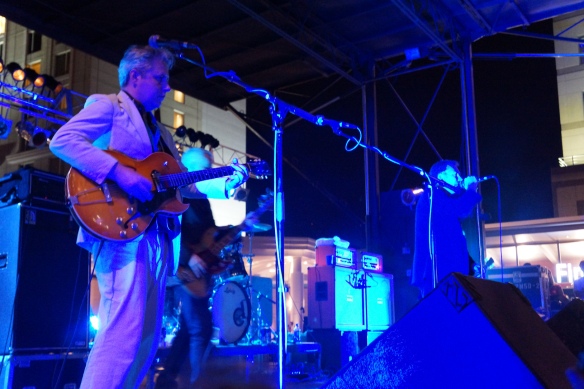
When you went into making Psychocandy, did you know it would be well accepted? You went from not being able to get shows to having a record that people liked? Did you know it would have staying power or that it would even be successful when it came out?
We felt quite quietly confident. We were listening to a lot of bands from the 60’s when we made the record. We kind of hoped that we would have that kind of appeal to generations down the line. We thought it was going to be around for a while, but 30 years? It’s kind of hard to imagine those kinds of things when you’re 23 years old, which I was at the time. It just seemed unthinkable that in 30 years people will still be listening to your record.
When you wrote “Just Like Honey” did you know you had a hit. It seems to stick out from the rest of the record, and it even begins the record. Was it as big then as it’s come to be? It’s become iconic over time.
Well, my brother actually wrote that, but yeah you don’t know anything at the time. I remember recording it and feeling good about it at the time, but you don’t really how it’s going to affect people until it gets out there. Then you can test people’s reactions, you know. It hit pretty quick, that song. This was during a time where there would be riots at Jesus and Mary Chain shows. There would be people knocking seven kinds of shit out of each other and then we’d start playing “Just Like Honey” and people would stop for a couple of minutes and it would be like “ah, isn’t that nice.” And then we’d start playing “The Living End” and it would be back to the baseball bats again.
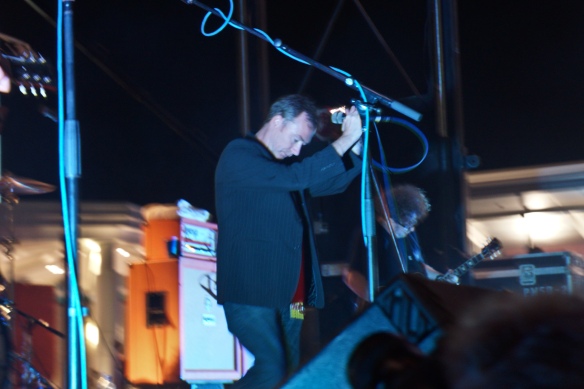
So those shows were as violent as the legend tells?
It was getting that way. Not all of them. Towards the end of ‘85, it became the thing to do—go to a Mary Chain show with a metal bat up your sleeve. It was getting silly. We didn’t want that. It’s not something we had planned and we were worried someone was going to get seriously hurt. So we went away for a while and hoped that people would forget about the riot shows. And it worked. We came back in ’86 and it seemed like a different thing.
Is it interesting now to play to more mellow, older, mature audiences 30 years later?
Yeah, but it’s been that way for a while. On non-Psychocandy tours, we’d gotten used to the fact that it wasn’t just a bunch of little lunatics running around. That’s long since gone.
What did you use to create that distorted sound that made this album so different and distinctive? Did you have an arsenal of guitar pedals?
There was one particular fuzz pedal that we had at that time. There was this guy who lived up the road from us and he sold us a fuzz pedal for a fiver and he thought he was ripping us off. It seemed like it was broken and then when we plugged it in it was like 15 jumbo jets. He was kind of running away with his five quid thinking “oh I sold these idiots a broken fuzz pedal.” But we were like, “fucking hell.” You plug this thing in and it would start to play by itself, you know what I mean? So we immediately went out to try and get as many of these pedals as we could. I think it was called Shin-ei. It was some kind of Japanese pedal. We snapped them up and that became the Jesus and Mary Chain sound for years.
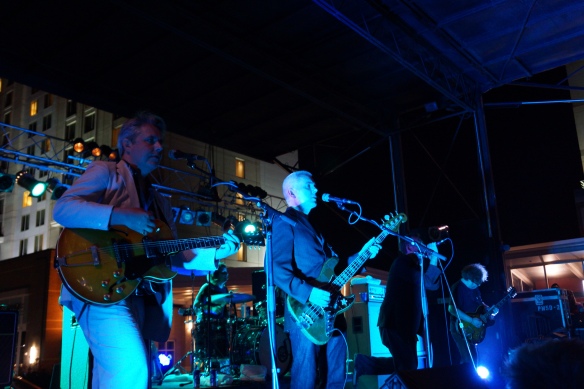
With all the new technology out there, do you play it differently now?
It’s more or less the same. All of the old ones more or less bit the dust. But then we bought some more of those Shin-ei pedals online and we’re using them now.
Did you guys really flip a coin early on to see who would be the singer? Is that a true story?
[Laughs] Yes, that is actually true. I didn’t want to do it and he didn’t want to do it. We are both really quite shy people. People always had these assumptions that we were pretty outgoing and things like that, but we were quite timid and shy. So I didn’t want to do it; he didn’t want to do it. So we flipped a coin and I lost. So I became the singer. Then when I started to get a lot of attention, shall we say, he became very jealous of that and we had another fight over the singing thing again. Of course now he wanted to do it. I was like, “no I’m the singer now so bugger off.” And that was that.
Lots of people say you paved the way for distortion and the waves of bands to follow. Who did you get your initial inspiration from?
The obvious thing to say is the Velvet Underground. We were listening to the Velvets quite a lot at that time. But the big influence on us at the time is we were listing to 60’s garage music. We’ve said it before, but we were listening to Einsturzende Neubauten and the noise bands, but we were also listening to 60’s girl bands like the Shangri-Las. I remember having a conversation with William and saying, “wouldn’t it be great if Neubauten had songs like the Shangri-Las. We thought, “Whoa let’s do it.” And that became the blueprint for the band.
Does it give you a sense or pride to hear that bands are influenced by you? Or do you feel like you have been ripped off?
I haven’t heard anyone that is an out and out pastiche. That would be pointless and I would find that rather irritating. I hear bands sometimes that have picked up some of our influence, but that’s fine. That’s what it’s all about. We got ours from the Velvets and the Stooges. It’s all there for the taking. You have to be careful that it’s not an outright emulation. You have to put your own personality in there as well.
Tell me about what John Peel meant to the band and his role in your initial success.
At the time there was nowhere to go with music. There was nowhere to take it. With the way record labels were, it was hard to get exposure anywhere. Here you have John Peel on national radio that would get a band like the Mary Chain a session. He would bring you in, you’d play four tracks and he would play them for several nights in a row. It was just amazing to us. We had no record deal. We played a string of shows, but basically nobody knew us. And this guy gives you an opportunity like this. John Peel… there was no one like him and there’s been no one like him since. He was incredibly important to the British music scene at that time.
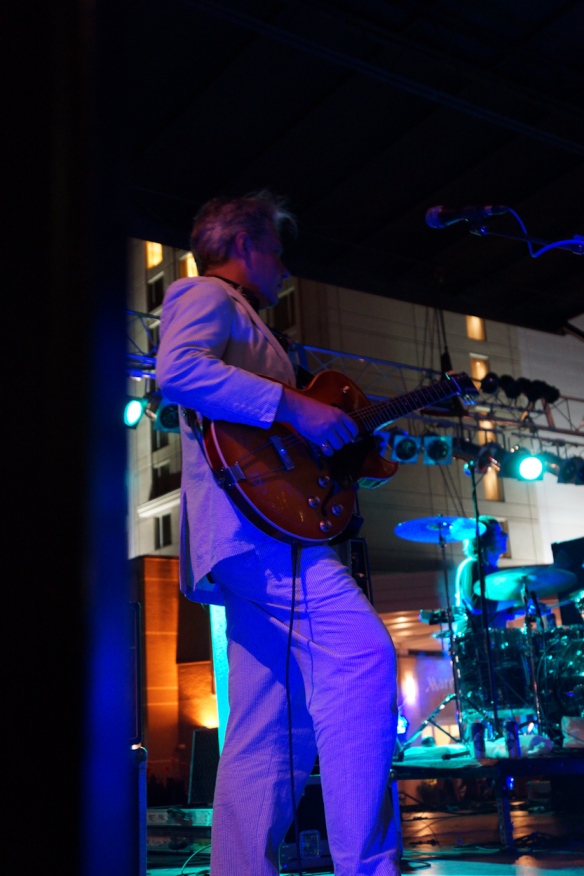
Do you remember the point where the band went from being a hobby to a career?
It kind of happened over night for us. From the get go, Mary Chain gigs were not the kind of shows you went to and forgot about the next day. There was an extreme reaction. The old love or hate thing. Very few people went, “That was okay.” People either thought we were the best band in the world or they’d be waiting on the side of the stage to beat the living shit out of you. There was no in between it seemed. With that in mind we thought we had kind of hit on something here. I remember there was one gig we played in London. The usual chaos and confusion occurred and we buggered off to do this Creation Records tour of Germany. When we got back, that gig had been reviewed in both the NME and The Sound. The Sound said we were the worst band they’d ever seen…ever. And NME said we were the best band since the Sex Pistols and a mix of the Sex Pistols and Joy Division. That was it. We knew there and then that there would be guys in Armani suits coming with checkbooks. Sure as hell, there were.
When I look at the old interviews you guys did for TV, you had a very disenchanted demeanor. Was that an act? Was it youth?
It wasn’t staged. It had to do with being young and being awkward. It was lacking confidence and trying to look incredibly confident. That’s what it was really. We didn’t know how to present ourselves. We just compensated for that. When I look back at those old videos now, I cringe quite a bit. It’s part of growing up.
Early on, with the volume and noise, did you have a negative reaction from venues? And did that change when you became accepted into the mainstream?
There was no kind of period where we were playing and then we were successful. On the Psychocandy tour, I remember there were a lot of PA companies that wouldn’t rent us any equipment because there had been some incidents.
 When you look back at the songs now? Are you still excited about them? Are there ones you don’t like play? Are you nervous that you will you get tired of playing these songs every night?
When you look back at the songs now? Are you still excited about them? Are there ones you don’t like play? Are you nervous that you will you get tired of playing these songs every night?
It may, and if it does we’ll stop doing it. But I imagine there’s a ways to go before we get to that point. I remember for a while we used to do “April Skies” at every show. We did it because we thought people expected us to. After awhile, I couldn’t stand the fucking song. So one day I said, “Let’s not do ‘April Skies’” and everyone agreed. Now I quite enjoy doing it again. If it gets to that point we’ll move on and do something else instead.
What’s your favorite Jesus and Mary Chain record?
I don’t know. I don’t have one. Although I don’t have a favorite record, I feel like I still want to bring Munki to people’s attention. It’s the one that got overlooked. It came out at a time when the Mary Chain were falling apart. It came out at a time when we were considered to be uncool. We were considered to be yesterday’s news… at least in the UK. But that one got overlooked and I think it’s at least as good as the other records. I would just love it if it picked up some momentum.
Right after Psychocandy and pioneering that distortion, you immediately went with a quieter sound. Did that have any backlash? When you considered following up Psychocandy was that always how you imagined you’d do it?
At the time we just didn’t know what to do. There’s a two year gap between Psychocandy and Darklands and we just thought what next. There was a vibe in Britain at the time where people thought we shouldn’t ruin it and we should split up and just leave it at that. I thought, “Fuck that.” We want to make more records. But we were generally confused as to what direction to go it. We just knew we didn’t want to make Psychocandy 2 if you know what I mean. So we did something totally different, something that absolutely, unmistakably is NOT Psychocandy. So that was that one. Plus people were always talking about the guitar sound and not the songs, so we thought we should push the songs. That was the thinking really. It was also the bold thing to do. The easy thing to do would be to do another Psychocandy. And we did take a lot of flak for that at the time.
How were the songs written? Did you have your songs and he had his? Did you collaborate?
Well we never really wrote together. We would write together on the b-sides at the studio. He had his songs. And he was always more prolific than me. By the time we got to Darklands, he was in the driver’s seat and I was happy about that. For a long time, I thought as long as a good Mary Chain record is coming out, I don’t care who writes them.
You guys released one song called “All Things Must Pass” back in 2008 with the tease of a potential forthcoming Mary Chain record. Is there one in the works?
We are closer now to making a new Mary Chain record than we ever were. When we got back together we just didn’t know where and how to record a new record. At that time my kids were quite young and I didn’t want to disappear for months on end to make a new album. Then there was also how to record it. William wanted to do it in a studio and I thought we should just make it ourselves with ProTools. Now my kids are a little older and its not as nightmarish as it once seemed. It’s looking good.
What do your children think of you music?
They’re still quite young. They are 8 and 12. They’ve gone from being quite embarrassed to—I wouldn’t say proud—but kind of getting that way. They don’t really get it. They came with me to a festival in Spain and they were astounded that anyone would ask for my autograph.
